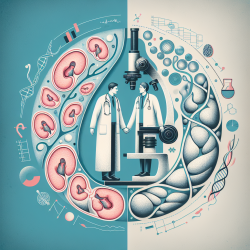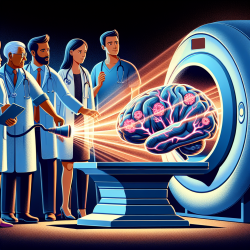Introduction
Endogenous Cushing’s Syndrome (CS) is a rare and debilitating disorder caused by the chronic overproduction of cortisol. This condition presents a significant challenge for endocrinologists due to its diverse symptoms and high burden on patients' health-related quality of life (HRQoL). A recent study titled "A medical chart audit to assess endocrinologist perceptions of the burden of endogenous Cushing’s syndrome" provides valuable insights into the perceptions of endocrinologists regarding the disease burden and treatment options for CS. This blog aims to highlight the key findings from this study and suggest ways practitioners can improve their skills and patient outcomes.
Key Findings from the Study
The study involved 69 endocrinologists who reviewed 273 medical charts of patients with CS. The findings reveal several important insights:
- Patients with CS experience a high burden of comorbidities and symptoms, such as fatigue, weight gain, and muscle weakness, despite receiving multi-modal treatment.
- Improvement in HRQoL was rated as the most important treatment attribute by endocrinologists.
- Surgical intervention was the treatment modality that endocrinologists were most satisfied with, yet they acknowledged a significant unmet treatment need for patients with CS.
Implications for Practitioners
Given the study's findings, practitioners can take several steps to enhance their approach to treating CS:
- Focus on HRQoL: As improvement in HRQoL is a key concern, practitioners should prioritize treatments that address this aspect. Regular assessments of patients' quality of life can guide treatment adjustments.
- Comprehensive Treatment Plans: While surgery is effective, it may not address all symptoms. Consider a multi-disciplinary approach that includes pharmacotherapy and psychological support to manage persistent symptoms.
- Stay Informed: Keep abreast of emerging treatments and research in CS to provide the best possible care. This includes understanding the side effects and long-term efficacy of current treatment options.
Encouraging Further Research
The study underscores the need for continued research into CS treatments that can effectively manage symptoms and improve HRQoL. Practitioners are encouraged to participate in or support research initiatives that explore new therapeutic avenues and patient management strategies.
Conclusion
The burden of Cushing’s Syndrome on patients is profound, and current treatments do not fully alleviate this burden. By focusing on HRQoL and adopting a comprehensive treatment approach, practitioners can improve outcomes for their patients. Continued research and collaboration among healthcare providers are essential to address the unmet needs in CS treatment.
To read the original research paper, please follow this link: A medical chart audit to assess endocrinologist perceptions of the burden of endogenous Cushing’s syndrome.










